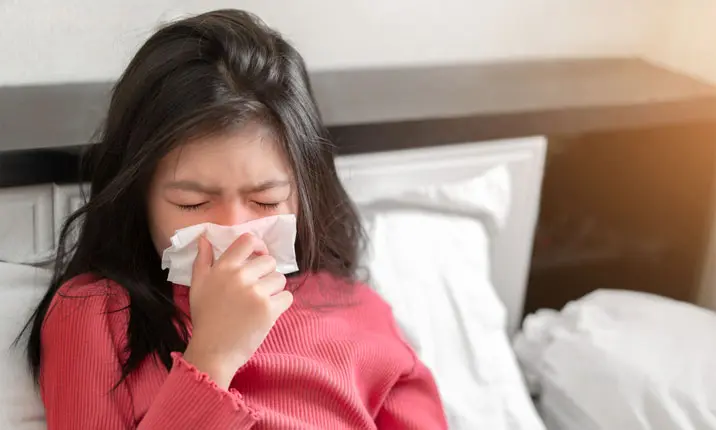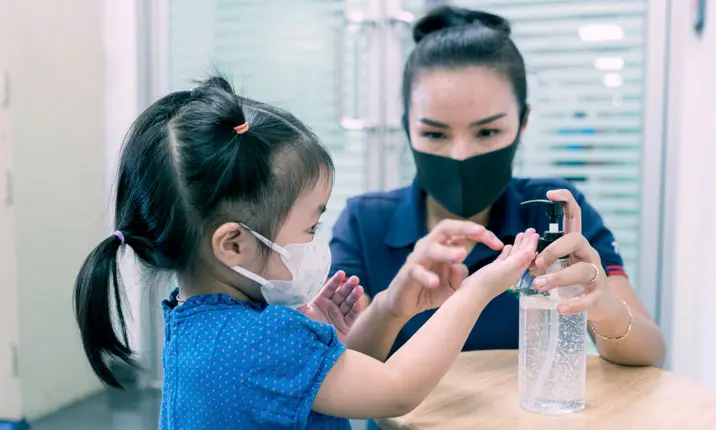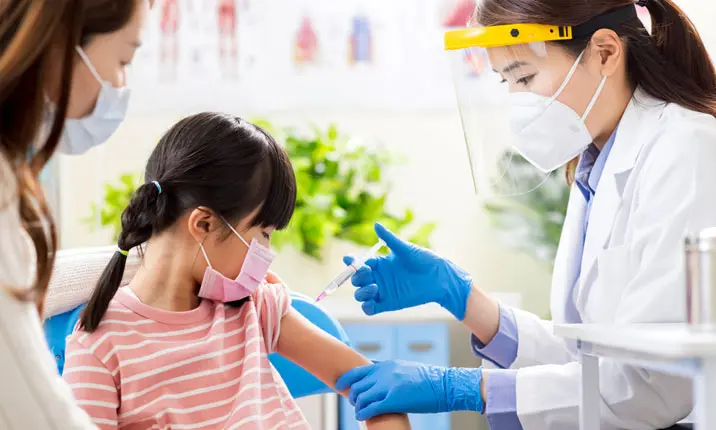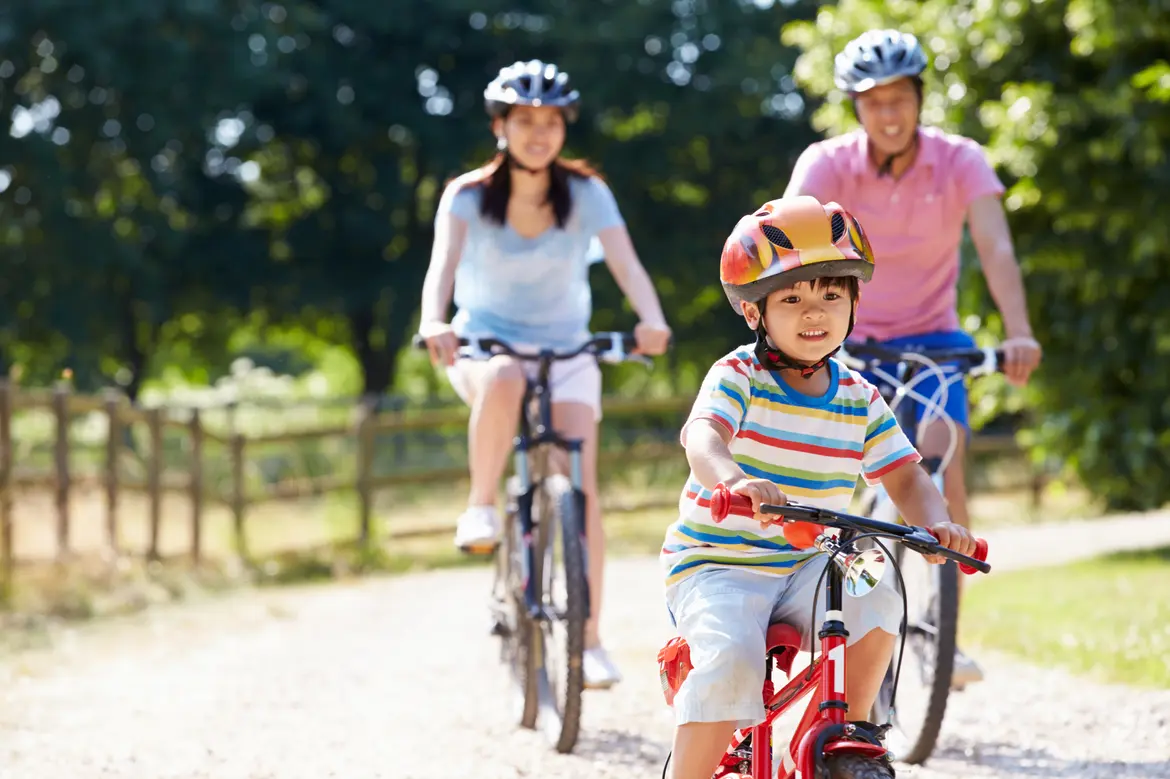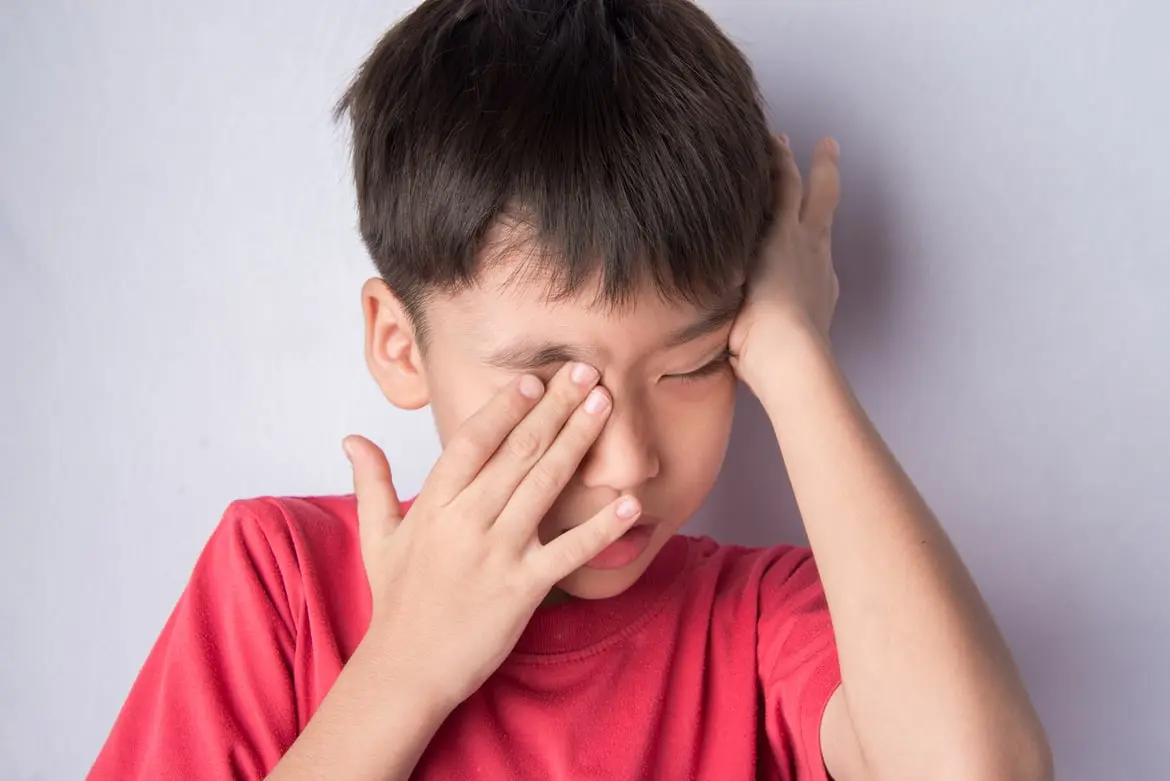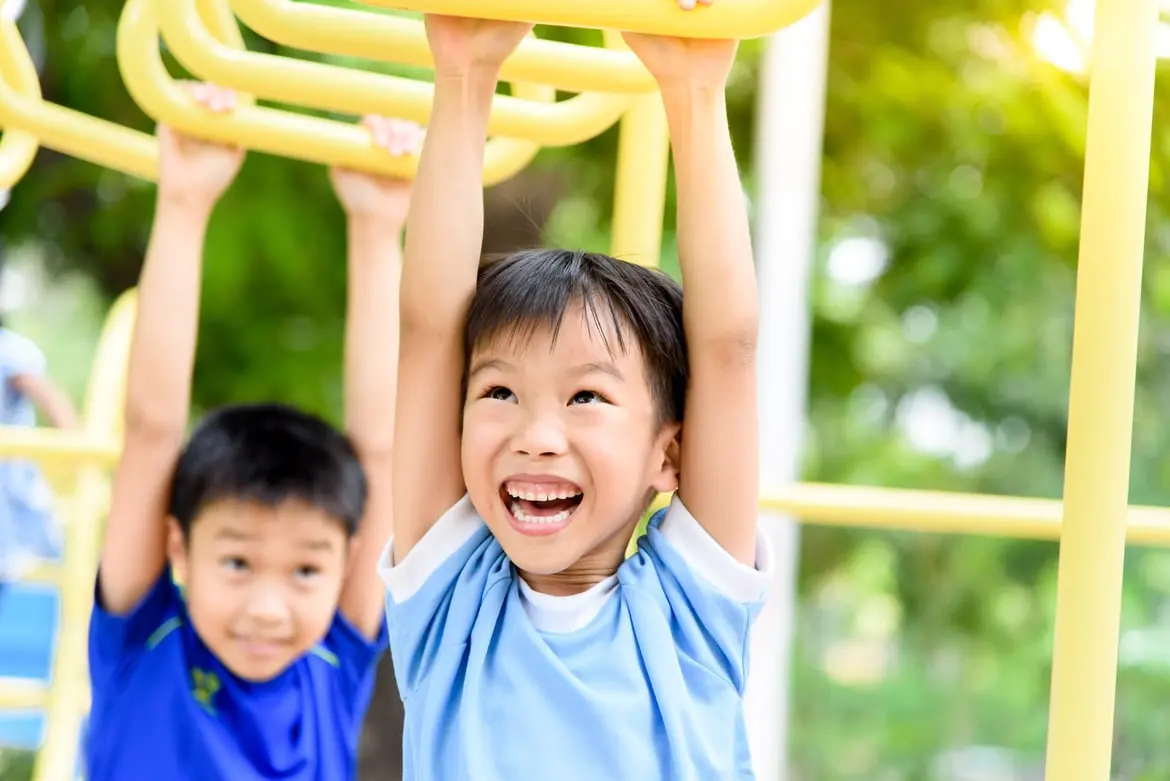
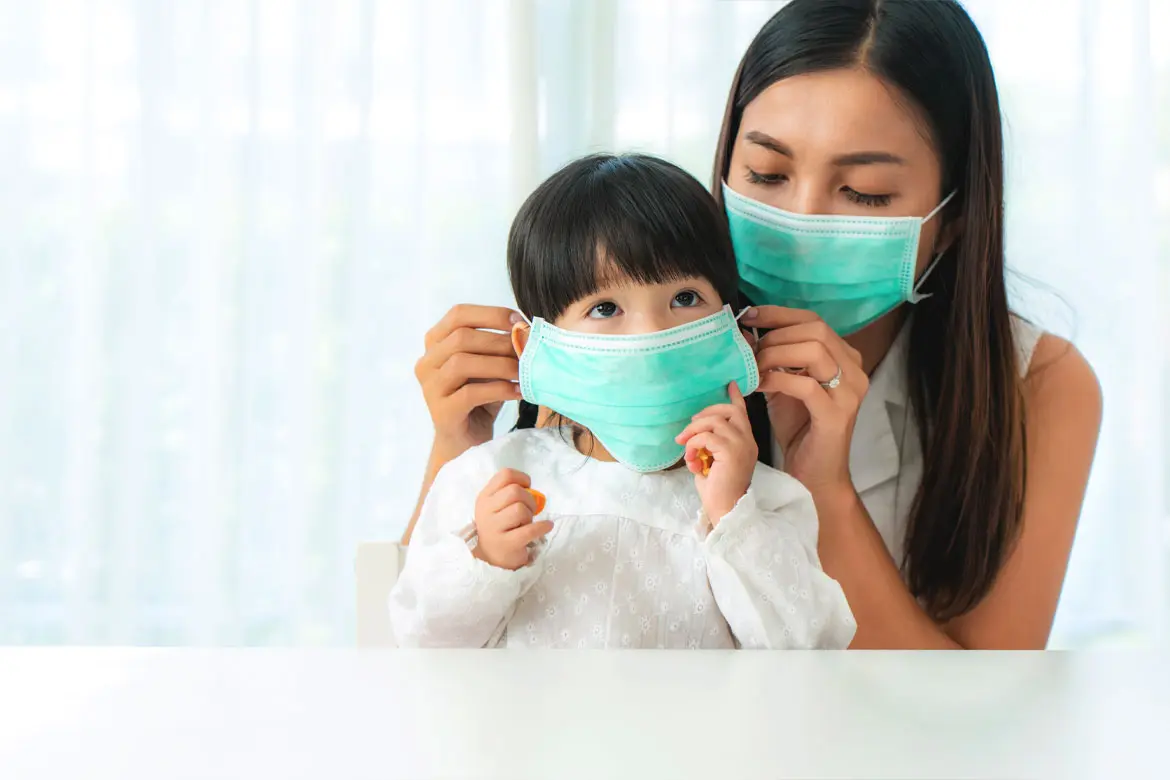
Source: Shutterstock
COVID-19 Vaccination in Children: Frequently Asked Questions
Last updated: Monday, September 13, 2021 | 5 min reading time
Find out more about how the vaccinations could help protect your little ones against COVID-19.
COVID-19 emerged in late 2019, and vaccines have since been quickly developed to help protect against the spread of the virus. Today, millions of people around the world have received their vaccinations against the virus, but debates over the vaccines' efficacy on children are still ongoing. Dr Mohana Rajakulendran, paediatrician at Parkway East Hospital and mother of 2, sheds light on the situation with answers to these frequently asked questions on protecting children with the COVID-19 vaccines.
1. How important is it for children to get vaccinated against COVID-19?
As of today, there are no statutory regulations on compulsory vaccinations for children. However, one can consider the following:
a. Children experience less severe disease and have lower fatality rates from COVID-19 than adults.
Recent cohort studies indicate that only up to 6% of infected children experience severe disease, whereas up to 26% of adult cases progress to severe illness requiring ICU admission. Severe cases occur mostly in over 60 years of age.
While death from COVID-19 is rare in children, there have been cases where kids with mild infections later developed a sometimes-deadly condition called multi-system inflammatory syndrome in children (MIS-C). This inflammatory condition can have detrimental effects on the heart. Worldwide incidence of this condition has been estimated to be as high as one case in 1,000 children affected.
b. The emergence of faster-spreading variants, along with rising adult vaccination rates in some countries, means that children and adolescents might soon be contributing more to the spread of the virus.
Just a year ago in April 2020, paediatric cases accounted for only 2% of reported cases in the United States and 1 – 5% of cases globally. On 13 May 2021, the American Association of Paediatrics (AAP) reported that children represented 24% of new cases reported in the past week, accounting for 48,915 out of 204,216 new weekly cases.
Experts are linking this trend to the particularly high vaccination rates among older Americans. As a consequence, we might soon see that children are contributing more and more to COVID-19 transmission.
c. In Singapore, the incidence and disease burden of COVID-19 has been very low in children at 1.3%.
Vaccination in children may not be primarily be performed for the children's self-protection but also for that of the community, mainly the elderly or high-risk individuals they are in contact, with such as grandparents within the same household.
Hence, each vaccine will have to be thoroughly tested and proven safe before being administered to children to respect the risk-benefit balance. The data from ongoing vaccine trials will provide us with more information on this.
However, of note we may already be seeing the trends of rising childhood infections, which the USA has demonstrated, with the recently reported school and tuition centre clusters forming in the past weeks.
2. Can my child take the vaccine?
In Singapore, before 18 May 2021, COVID-19 vaccines had only been authorised for individuals aged 16 and above. The government is currently monitoring trials on the effect of COVID-19 vaccines on children, with the hopes of certifying and administering them in the near future.
As of 18 May 2021, the Pfizer-BioNTech COVID-19 vaccine has been authorised by the Health Sciences Authority for children aged 12 – 15. This is the first COVID-19 vaccine authorised for use in Singapore for this age group.
On 31 May 2021, the government announced that Singapore would be expanding its COVID-19 vaccination programme to include students aged 12 and above.
3. What are some of the findings from trials with child participants?
Pfizer–BioNTech and Moderna vaccine trials have begun in children as young as 6 months old from late March this year.
Early phase 3 trial results for the Pfizer–BioNTech vaccine have shown promising results about the vaccine's efficacy. The trial was conducted on 2,260 adolescents aged 12 – 15-year-olds who received two standard doses of the Pfizer vaccine.
The vaccine was 100% effective in the treatment group. Within this trial, 18 cases of COVID-19 were observed in the placebo group (1,129 children) versus none in the vaccinated group (1,131 children). Results also showed that they developed substantially higher levels of virus-blocking antibodies than 16 – 25-year-olds did in earlier trials.
4. How safe are vaccines for children? What side effects may take place?
Common side effects of the vaccination so far include pain at the injection site, fatigue, headache, muscle pain, chills, joint pain, fever, nausea, feeling unwell and swollen lymph nodes.
Reports so far show that the vaccine elicits a good immune response, and is very safe for the children and adolescents, at least for those above the age of 12 so far who received the vaccine. However, children's potent immune responses mean that they might be more likely than adults to develop a fever after vaccination.
In terms of safety of vaccination, the paediatric trials would also need to look at an over-robust immune responses that might exacerbate disease, as well as any signs that participants might develop immune reactions similar to those seen in MIS-C.
5. If my children do not take the vaccine, what can I do to keep them, as well as those around them, safe?
The same guidelines apply for both vaccinated and unvaccinated individuals, regardless of age. As a parent, you can help your children stay safe by doing the following:
- Remind your children to clean their hands often with soap and water. They can also use an alcohol-based sanitiser.
- Remind them to maintain a safe distance from people beside them. In Singapore, the general guideline is at least a minimum of 1 metre in public spaces.
- For children above 2 who are wearing masks, ensure that they are doing so properly. The mask should fit properly over the nose and mouth, and secured under the chin.
- Educate them on keeping others safe – tell them to cover their noses and mouths with their bent elbows or a tissue when they cough or sneeze.
- Seek medical attention if a child has a fever, cough, or difficulty breathing.
Experts have advised individuals to seek medical treatment immediately upon experiencing symptoms, even minor ones. If your child has respiratory symptoms such as a cough, runny nose or fever, do visit your nearest Public Health Preparedness Clinic. Such precautions are key in keeping the community safe.
Munro, A, (2020). Children are not COVID-19 super spreaders: time to go back to school. Retrieved on 12 March 2021 from https://adc.bmj.com/content/105/7/618
Children and COVID-19: State-Level Data Report. https://services.aap.org/en/pages/2019-novel-coronavirus-covid-19-infections/children-and-covid-19-state-level-data-report/
Tan, C, (2020). askST: What do we know so far about children who are infected with Covid-19? Retrieved in 12 March 2021 from https://www.straitstimes.com/singapore/askst-what-do-we-know-so-far-about-children-who-are-infected-with-covid-19
Chappell, B, (2020). Children Now Account For 22% Of New U.S. COVID Cases. Why Is That? Retrieved on 12 March 2021 from https://www.npr.org/sections/coronavirus-live-updates/2021/05/03/993141036/children-now-account-for-22-of-new-u-s-covid-cases-why-is-that
Pfizer-Biontech Announce Positive Topline Results Of Pivotal Covid-19 Vaccine Study In Adolescents. Retrieved on 12 March 2021 from https://www.pfizer.com/news/press-release/press-release-detail/pfizer-biontech-announce-positive-topline-results-pivotal
Callaway, E, (2021). COVID vaccines and kids: five questions as trials begin. Retrieved on 12 March 2021 from https://www.nature.com/articles/d41586-021-01061-4
Lewis, F, (2021). What new COVID variants mean for schools is still not clear. Retrieved on 12 March 2021 from https://www.nature.com/articles/d41586-021-00139-3
Yang, C, (2020). S'pore monitoring trials on Covid-19 vaccine effect on kids, hopes to certify and administer them in near future. Retrieved on 12 March 2021 from https://www.straitstimes.com/singapore/spore-monitoring-trials-on-covid-19-vaccine-effect-on-kids-hopes-to-certify-and-administer
Children and COVID-19: State-Level Data Report. https://services.aap.org/en/pages/2019-novel-coronavirus-covid-19-infections/children-and-covid-19-state-level-data-report/
Tan, C, (2020). askST: What do we know so far about children who are infected with Covid-19? Retrieved in 12 March 2021 from https://www.straitstimes.com/singapore/askst-what-do-we-know-so-far-about-children-who-are-infected-with-covid-19
Chappell, B, (2020). Children Now Account For 22% Of New U.S. COVID Cases. Why Is That? Retrieved on 12 March 2021 from https://www.npr.org/sections/coronavirus-live-updates/2021/05/03/993141036/children-now-account-for-22-of-new-u-s-covid-cases-why-is-that
Pfizer-Biontech Announce Positive Topline Results Of Pivotal Covid-19 Vaccine Study In Adolescents. Retrieved on 12 March 2021 from https://www.pfizer.com/news/press-release/press-release-detail/pfizer-biontech-announce-positive-topline-results-pivotal
Callaway, E, (2021). COVID vaccines and kids: five questions as trials begin. Retrieved on 12 March 2021 from https://www.nature.com/articles/d41586-021-01061-4
Lewis, F, (2021). What new COVID variants mean for schools is still not clear. Retrieved on 12 March 2021 from https://www.nature.com/articles/d41586-021-00139-3
Yang, C, (2020). S'pore monitoring trials on Covid-19 vaccine effect on kids, hopes to certify and administer them in near future. Retrieved on 12 March 2021 from https://www.straitstimes.com/singapore/spore-monitoring-trials-on-covid-19-vaccine-effect-on-kids-hopes-to-certify-and-administer
 Brain & Spine Care
Brain & Spine Care